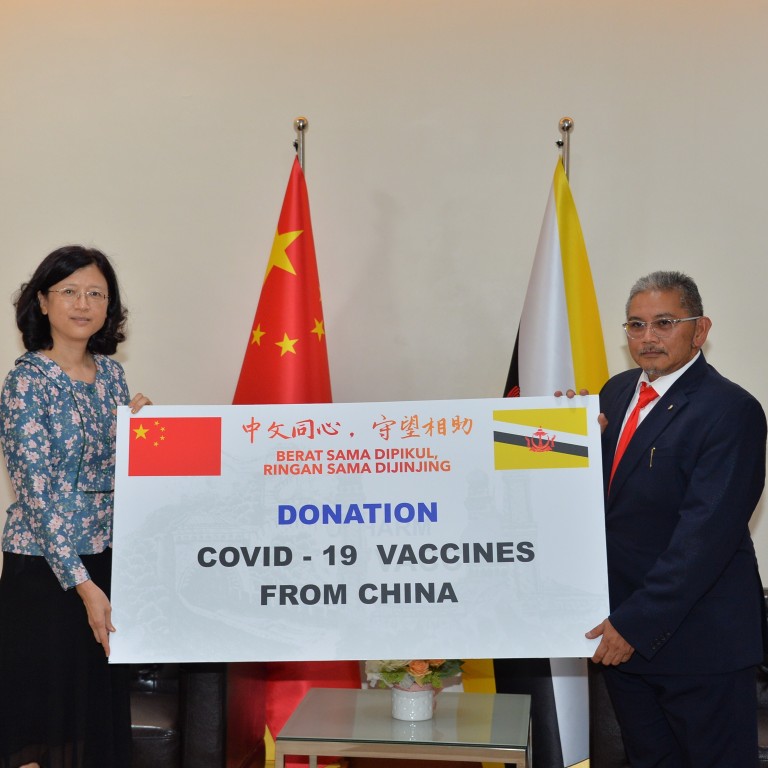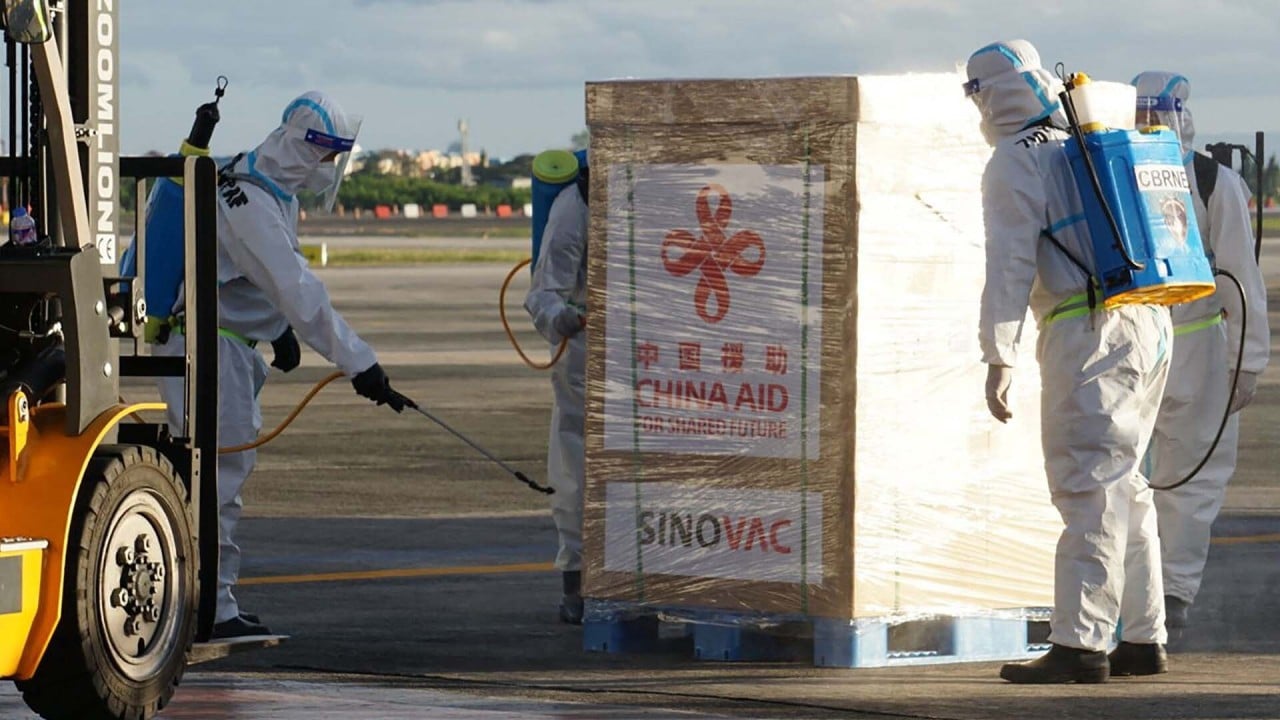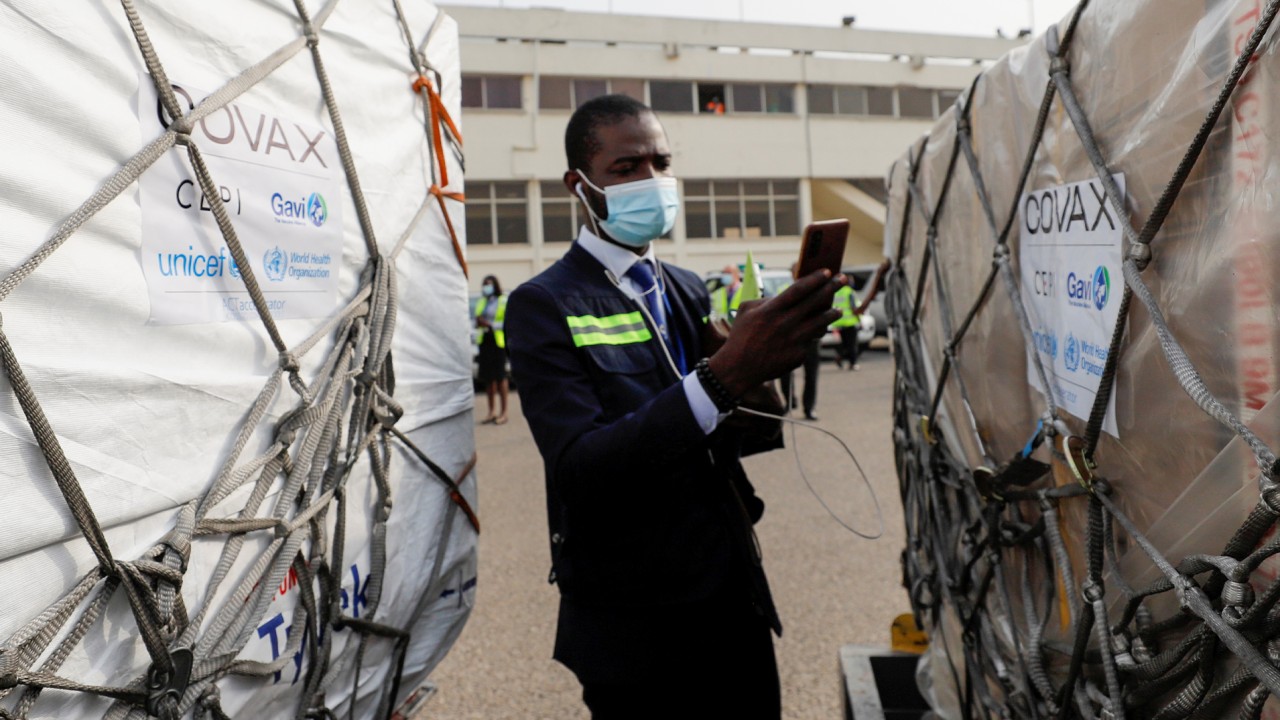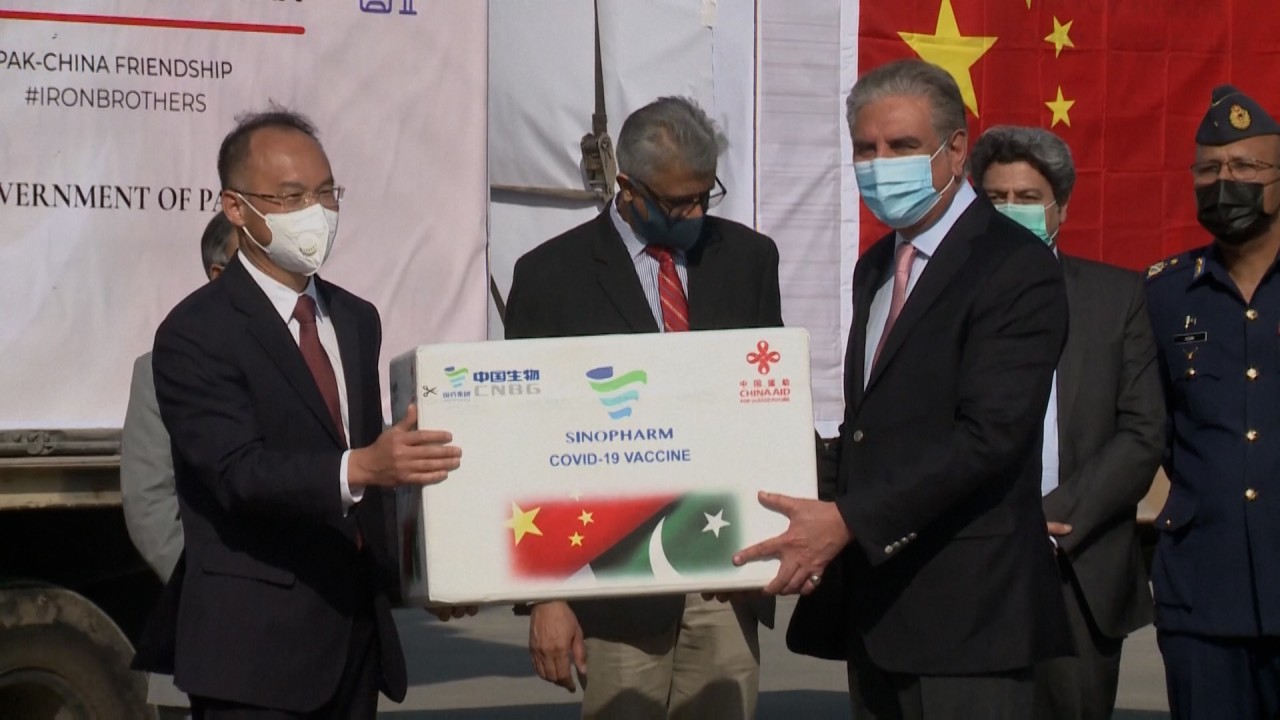
China juggles vaccine diplomacy drive with demand for Covid-19 doses at home
- The country has made exports of vaccines a priority, in the form of donations and commercial deals
- But the focus may shift to upping the pace of inoculation domestically, with under 4 per cent of its people having had a jab
Flights carrying donated vaccines from China have touched down in Bolivia, Zimbabwe, Equatorial Guinea, Iraq, Pakistan, Cambodia and Laos, among others, in recent weeks as Beijing has sought to back up a promise that Chinese vaccines would be a “global public good”.
That is in addition to tens of millions of ready-made doses and raw materials already shipped overseas via commercial deals with Chinese vaccine makers.

03:05
China-made coronavirus vaccines widely distributed despite efficacy concerns
Now, the focus may be shifting as China appears set to ramp up vaccinations at home. The country’s leading respiratory disease expert Zhong Nanshan this week said China aimed to vaccinate 40 per cent of its 1.4 billion population by the end of July, according to a Reuters report.
So far, about 52 million people in China – less than 4 per cent – had received a jab, Zhong said on Monday at an event hosted by the Brookings Institution in Washington and Beijing’s Tsinghua University.
Meeting the 40 per cent target would require a massive increase in daily vaccinations and public willingness to take the jabs, but experts say it is unlikely to curb China’s ambitions as a global supplier of doses, now a cornerstone of its pandemic foreign policy response.
“From the very beginning, [China] was hoping to make both ends meet: pursuing vaccine diplomacy while trying to meet the demands of the domestic population,” said Yanzhong Huang, a senior fellow for global health at the Council on Foreign Relations.
There had been questions about whether China had the production capacity to meet both needs, but Zhong’s statement suggests this is no longer considered a serious challenge, Huang said.
How Covid-19 vaccines can clear final regulatory hurdle
Nicholas Thomas, an associate professor in health security at City University of Hong Kong, said there may be leeway in the 40 per cent target given by Zhong. For example, Zhong suggested it could include people who have received one dose of a two-dose vaccine, which would mean “the target is achievable without compromising China’s international commitments”, Thomas said.
China’s vaccine makers have pledged more than half a billion doses to governments overseas, according to the Duke Global Health Innovation Centre in the US. This includes doses in the form of raw materials that can be used in vaccine production overseas, easing the strain on China’s factories.
Annual production capacity in China could be raised to close to 4 billion doses a year in combined output, according to Tao Lina, a vaccine expert and former immunologist at the Shanghai Centre for Disease Control and Prevention. Four vaccines have been authorised for public use, including two last week.
One is a single-shot vaccine by CanSino Biologics, which the company says can reach an annual production capacity of 500 million doses this year and is considered a significant boost to China’s vaccine arsenal.

01:27
First Covax delivery completed as Ghana receives 600,000 doses of vaccine under WHO-led scheme
But even with capacity ramping up, expanding the vaccination programme in China poses challenges.
Shanghai-based infectious disease expert Zhang Wenhong, speaking alongside Zhong at this week’s event, said that even if 10 million people were vaccinated each day, it would take roughly seven months to vaccinate 70 per cent of China’s population. In the meantime, the country would be threatened by imported cases, he said.
Covax last week began delivering hundreds of thousands of doses, which is set to significantly shift the global vaccine landscape and outpace aid to poorer countries from any one country. It also poses another supply allocation question for Beijing, analysts say.

01:56
Pakistan starts Covid-19 vaccine drive with over 500,000 jabs donated by China
“Chinese strategists may be torn between the rhetorical call to support multilateral institutions, such as Covax, and the desire to garner direct political benefits from bilateral efforts,” Drew Thompson, a visiting senior research fellow at the National University of Singapore, said.
China joined the Covax initiative in October, and last month pledged 10 million doses to the facility, which aims to distribute at least 2 billion doses this year. It has not contributed to a mechanism that pays for doses for poorer countries.
Approvals by the WHO would bolster the global credibility of the Chinese vaccines, which have faced some scepticism after the makers shared less data on the results of phase 3 trials than Western vaccine makers.
Thomas, of Hong Kong’s CityU, said that barring major changes in domestic inoculation plans, he expected China to continue its vaccine export strategy, sending doses overseas through Covax, direct deals and aid.
“However, the provision of vaccines needs to be more sustained if it is to realise the health diplomacy benefits for both China and the recipient country,” he said.
Additional reporting by Guo Rui

